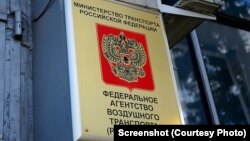The deputy chief of the Russian state aviation agency Rosaviatsia, Oleg Strochevoy, in a statement to the Russian press on January 31, 2017, accused the Joint International Committee investigating the crash of Malaysian passenger jet MH-17 in eastern Ukraine of shunning radar data Russia provided in the fall of 2016.
"To date, we have received no requests from the Dutch side to involve our experts in decoding the primary radar data," Strochevoy told reporters.
Referring to a German press report on January 27, Strochevoy said investigators are “deliberately delaying” the probe and blaming Russia for providing radar data that does not satisfy international requirements.
Der Standard quoted the Dutch prosecutor’s press-office as saying that the radar data provided by Russia is in a “different format from international standards” and “more information is needed to understand the importance of radar images.”
But Strochevoy said such a standard does not exist.
“There are no international requirements concerning such information (radar data) and the way it is recorded,” he said.
When contacted by Polygraph.info, a spokesman for the Dutch-led International Joint Investigation Team declined comment, saying investigators are preparing a response to the Russian claim.
But a spokesman for the International Civil Aviation Organization, a United Nations specialized agency that develops standards and practices for civil aviation worldwide, says Russia may have a point in its radar data requirements assessment.
“There is no guidance on the gathering and maintaining of said data, which makes the statement more or less accurate," ICAO Chief of Communications Anthony Philbin told Polygraph.info in an email.
According to Philbin, there are agency requirements for sharing data between nations but no standards as for gathering and maintaining data. Russia is one of 191 members in the agency.
An Agency guideline "simply provides that when said data has been gathered and recorded, it should be shared with the investigation,” Philbin said.
Russian Foreign Ministry spokeswoman Maria Zakharova said on February 3, 2016 that Russia is awaiting a response from international investigators.
"The official investigation is not hurrying anywhere,” she said. “Instead of promptness and transparency, there are still attempts to accuse Russia without any grounds or facts.”
The Dutch-led investigative team of five countries looking into the July 2014 downing of the plane submitted an interim report on September 28, 2016.
The report states that a Russian-made Buk missile launched from a village held by rebels fighting Ukrainian government forces hit the plane. It says a surface-to-air missile system that downed the airliner was driven in from Russia to rebel-held territory in Ukraine and pulled out of the area that same evening.
Before the report was issued, the investigative team did not receive radar data from the Russians, an investigation spokesman told Polygraph.info in October.
After the investigation findings were made public, the Russian Ministry of Foreign Affairs said it could not accept the findings as satisfactory as they are contrary to the radar data that Russia “conveyed recently.”
The Ministry did not, however, say to whom the radar data was conveyed, although it seems to imply that the radar data was sent to the investigation team headed by the Dutch Public Prosecutor.
In late October, Dutch Justice Minister Ard van der Steur said Russian prosecutors gave "a packet of information" to the Dutch embassy in Moscow. He added that the information needed to be assessed as to its value.
The contents have not been made public, making it impossible to assess the validity of the Russian data or the Russian claims.
A Dutch safety board report said on October 2015 that Russia initially provided “combined primary radar data and secondary surveillance…in the form of a video containing a radar screen replay. No other data was received.”
More:
http://tass.com/politics/928866
More:
http://tass.com/politics/928866
More:
http://tass.com/politics/928866





